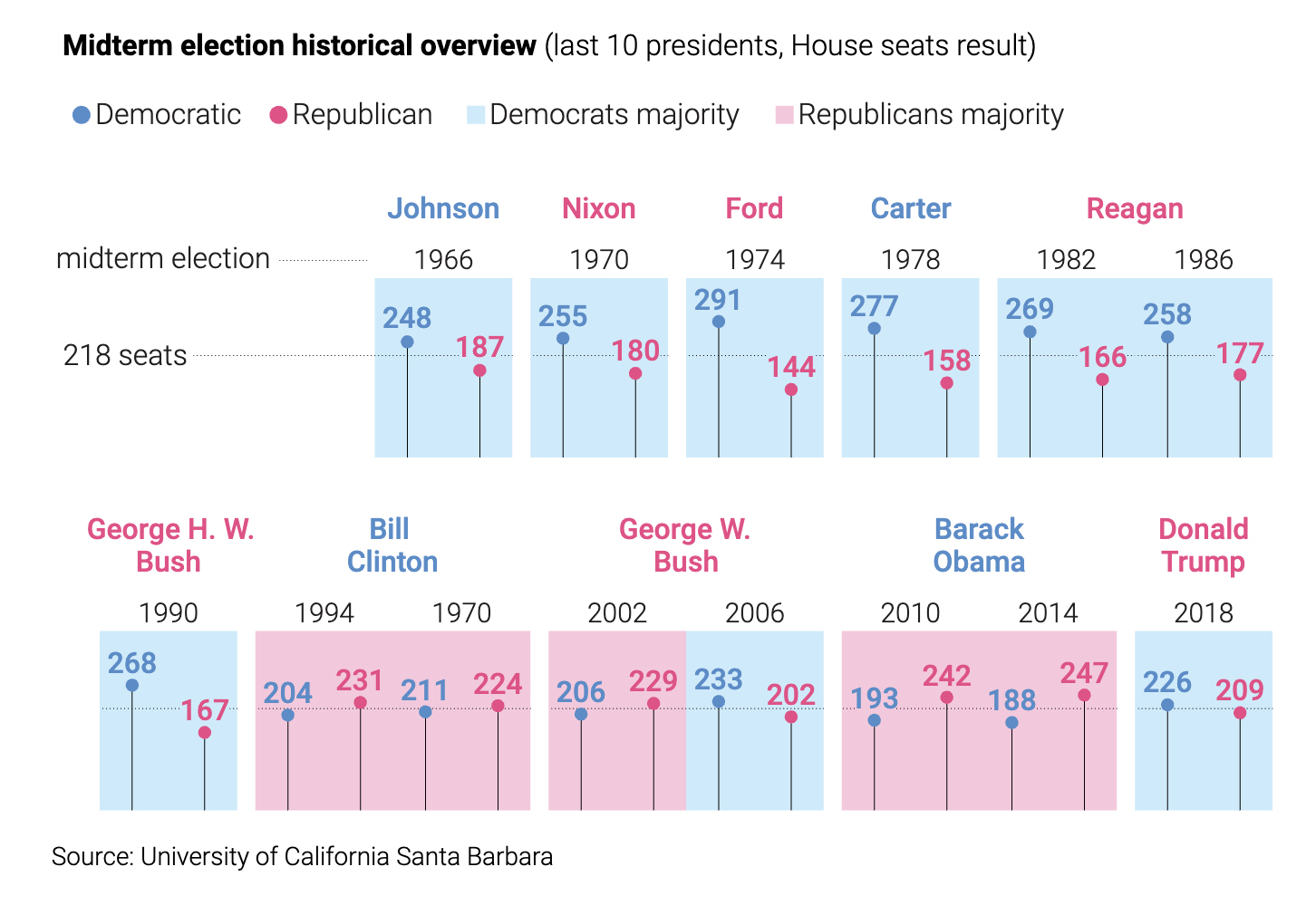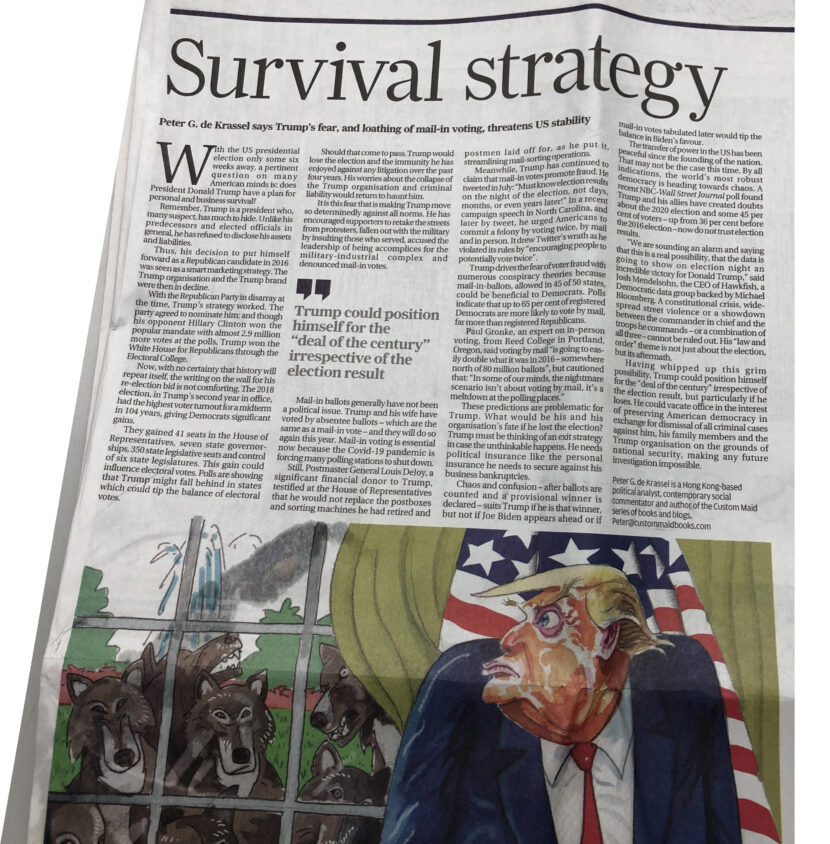- If Trump does lose the election, he will no longer be immune from criminal prosecution, putting him and his organization in jeopardy
- The confusion and distrust sown by Trump and his allies have left voters skeptical of election results and could end the US’ history of peaceful transitions of power
With the US presidential election only some six weeks away, a pertinent question on many American minds is: does President Donald Trump have a plan for personal and business survival?
Remember, Trump is a president who, many suspect, has much to hide. Unlike his predecessors and elected officials in general, he has refused to disclose his assets and liabilities. Thus, his decision to put himself forward as a Republican candidate in 2016 was seen as a smart marketing strategy. The Trump organization and the Trump brand were then in decline.
With the Republican Party in disarray at the time, Trump’s strategy worked. The party agreed to nominate him; and though his opponent Hillary Clinton won the popular mandate with almost 2.9 million more votes at the polls, Trump won the White House for Republicans through the Electoral College.
Now, with no certainty that history will repeat itself, the writing on the wall for his re-election bid is not comforting. The 2018 election, in Trump’s second year in office, had the highest voter turnout for a midterm in 104 years, giving Democrats significant gains.
They gained 41 seats in the House of Representatives, seven state governorships, 350 state legislative seats and control of six state legislatures. This gain could influence electoral votes. Polls are showing that Trump might fall behind in states which could tip the balance of electoral votes.

Should that come to pass, Trump would lose the election and the immunity he has enjoyed against any litigation over the past four years. His worries about the collapse of the Trump organization and criminal liability would return to haunt him.
It is this fear that is making Trump move so determinedly against all norms. He has encouraged supporters to retake the streets from protesters, fallen out with the military by insulting those who served, accused the leadership of being accomplices for the military-industrial complex and denounced mail-in votes.
Mail-in ballots generally have not been a political issue. Trump and his wife have voted by absentee ballots – which are the same as a mail-in vote – and they will do so again this year. Mail-in voting is essential now because the Covid-19 pandemic is forcing many polling stations to shut down.
Still, Postmaster General Louis DeJoy, a significant financial donor to Trump, testified at the House of Representatives that he would not replace the postboxes and sorting machines he had retired and postal workers laid off for, as he put it, streamlining mail-sorting operations
Meanwhile, Trump has continued to claim that mail-in votes promote fraud. He tweeted in July: “Must know Election results on the night of the election, not days, months, or even years later!” In a recent campaign speech in North Carolina, and later by tweet, he urged Americans to commit a felony by voting twice, by mail and in person. It drew Twitter’s wrath as he violated its rules by “encouraging people to potentially vote twice”.

